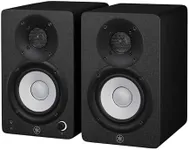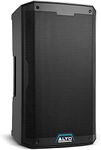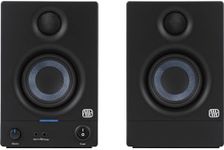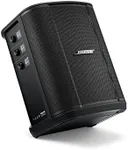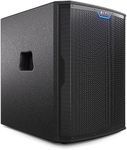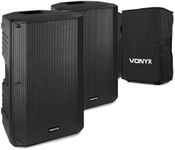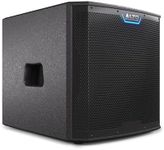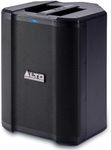Buying Guide for the Best Dj Speakers
When choosing DJ speakers, it's important to consider the environment in which you'll be using them, the type of music you'll be playing, and the size of the audience. DJ speakers are crucial for delivering high-quality sound that can energize a crowd, so understanding the key specifications will help you make an informed decision. Consider the balance between portability and power, as well as the durability of the speakers for frequent transport and use.Power Output (Wattage)Power output, measured in watts, indicates how loud the speakers can get. Higher wattage means more power and volume, which is important for larger venues or outdoor events. For small indoor gigs, speakers with lower wattage (around 100-300 watts) might suffice. Medium-sized venues might require 300-500 watts, while large venues or outdoor events could need 500 watts or more. Consider the size of your typical audience and venue to determine the appropriate power output.
Frequency ResponseFrequency response refers to the range of sound frequencies a speaker can reproduce, measured in Hertz (Hz). A wider frequency response means the speaker can produce both deep bass and high treble sounds. For DJ speakers, a typical range might be 20 Hz to 20 kHz, covering the full spectrum of human hearing. If you play bass-heavy music, ensure the lower end of the frequency response is robust. Choose a frequency response that matches the style of music you play most often.
PortabilityPortability is about how easy it is to transport and set up the speakers. This includes the weight, size, and design features like handles or wheels. If you frequently move your equipment between venues, lighter and more compact speakers are advantageous. However, more portable speakers might compromise on power and sound quality. Consider how often you'll need to transport your speakers and balance portability with performance needs.
DurabilityDurability refers to how well the speakers can withstand frequent use and transport. Look for speakers with robust build quality, such as reinforced corners and durable materials. Weather-resistant features might be important if you perform outdoors. If your speakers will be used in a variety of environments, prioritize models known for their ruggedness and reliability. Consider the conditions in which you'll use the speakers most often to determine the level of durability you need.
Connectivity OptionsConnectivity options determine how you can connect your audio sources to the speakers. Common options include XLR, RCA, and 1/4-inch inputs. Some modern speakers also offer Bluetooth connectivity for wireless streaming. Ensure the speakers have the necessary inputs for your DJ setup. If you use multiple devices or plan to expand your setup, look for speakers with versatile connectivity options. Consider your current and future equipment needs when evaluating connectivity.
Sound QualitySound quality is subjective but crucial, as it affects how your music is perceived by the audience. It involves clarity, balance, and the ability to reproduce music accurately. Listen to the speakers in person if possible, or read reviews to understand their sound profile. If you play a variety of music genres, look for speakers with a balanced sound. Consider the type of music you play and the experience you want to deliver to your audience when assessing sound quality.

